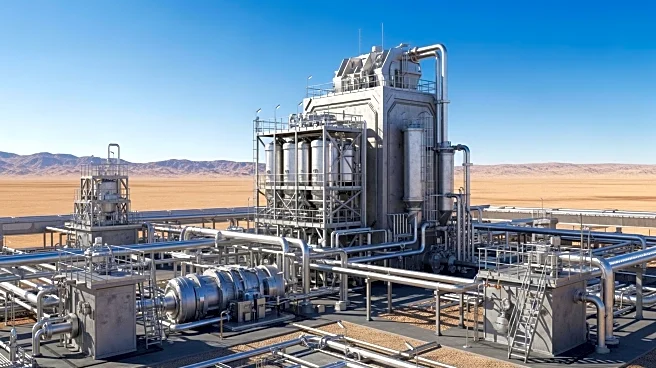What's Happening?
Alcoa Corporation has announced a collaborative effort with the United States and Australian governments to develop a gallium plant at its Wagerup alumina refinery in Western Australia. This initiative
is supported by Japan Australia Gallium Associates Pty Ltd (JAGA), a joint venture between the Japanese Government and Sojitz Corporation. The project aims to produce 100 metric tons of gallium annually, a critical mineral essential for technology sectors such as semiconductors and defense. The U.S. and Australian governments, along with Alcoa, will provide capital for the project, receiving gallium offtake proportional to their interests. The development is part of a strategic move to secure alternate supply chains for gallium, which is vital for national security.
Why It's Important?
The development of the gallium plant is significant due to gallium's role in the semiconductor and defense industries, which are crucial for technological advancement and national security. Currently, global gallium production is concentrated from a single source, making the establishment of alternate supply chains critical. This project not only strengthens the supply chain but also highlights the importance of international collaboration in securing essential minerals. The involvement of the U.S., Australia, and Japan underscores the geopolitical importance of diversifying sources for critical minerals, potentially reducing dependency on existing market controls.
What's Next?
Alcoa plans to continue working with the Western Australian Government to progress the project under the State Agreement and approvals framework. The parties involved are targeting 2026 for the final investment decision and production commencement. This timeline suggests ongoing collaboration and negotiations to finalize agreements and ensure the project's success. The development could lead to increased investment in the region and further strengthen ties between the participating countries.
Beyond the Headlines
The project reflects broader trends in international cooperation for resource security, particularly in the context of critical minerals. It may influence future policies regarding mineral extraction and trade, as countries seek to safeguard their technological and defense capabilities. Additionally, the project could stimulate local economies and create job opportunities, contributing to regional development.









